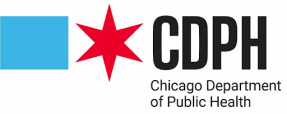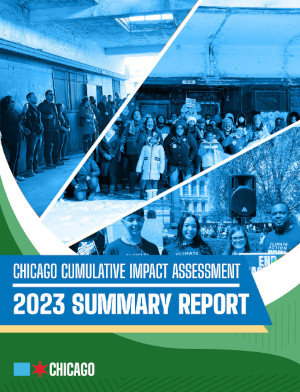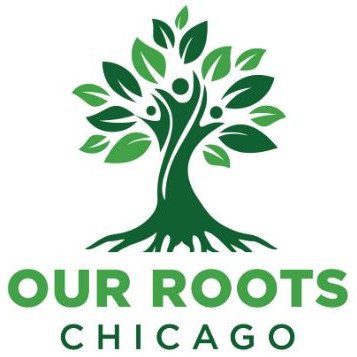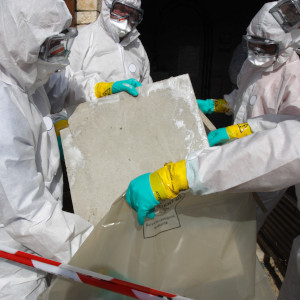Environmental Policy and Innovation

Policy and Innovation
The Chicago Department of Public Health (CDPH) is a national leader in its use of innovative research to measure and evaluate conditions that impact the health of Chicago’s residents. Based on this strong foundation, CDPH develops and implements meaningful projects to address some of the most important environmental and health issues facing Chicagoans. Through plans like We Will Chicago, the 2022 Climate Action Plan, and Healthy Chicago 2025, and with $188 million in environment-related investments allocated in 2022 through the Chicago Recovery Plan, the City and CDPH have brought community into solutions and advanced progressive policy changes. Taken together, these actions have been seen as a model for other cities that seek to ensure equitable public health and environmental protections for all.




Cumulative Impact Assessment
Building upon input from community-led environmental justice organizations, and with leadership and strategic guidance from partners that include people from the communities most impacted by industry, Chicago’s Cumulative Impact Assessment is a citywide project that provides data on how environmental burdens and other stressors vary across Chicago. This Assessment identifies neighborhoods that experience the greatest cumulative impacts; reinforces and supports the requirements of the City’s voluntary compliance agreement with the U.S. Department of Housing and Urban Development announced last May; and provides strategies and actionable policy recommendations to guide decision-making on issues such as land use/zoning, permitting, enforcement, transportation planning, and more.
Chicago’s Cumulative Impact Assessment was released in September 2023 with several key deliverables.

Tree Equity
In 2022, a multi-departmental City of Chicago program including CDPH, launched a new tree equity initiative, Our Roots Chicago. Encompassed in the Chicago 2022 Climate Action Plan and the City’s commitment to environmental justice and equity, Our Roots Chicago will plant 75,000 trees in the public parkway by 2027 under the $46 million Chicago Recovery Plan investment, expanding Chicago’s tree canopy across the city. In December 2022, the City of Chicago planted its 18,000th public parkway tree, exceeding the pledge to plant 15,000 trees each year for the next five years and has already reached the 2023 goal.
The initiative uses a data-informed, community-driven approach to tree planting to create more healthy, resilient and sustainable communities. Our Roots Chicago prioritizes tree planting in historically marginalized and underserved communities on the South and West Sides, where the City’s current tree canopy demonstrates a shortage of trees. In doing so, Our Roots Chicago will equitably bring public health, environmental, social and economic benefits to communities disproportionately impacted by the climate crisis and improve the health and well-being of residents.
CDPH continues to lead the Community Tree Equity Working Group of more than 120 members from community-based organizations, conservation organizations, advocates and local government.

Air Quality
Air pollution contributes to increased risk of chronic disease, which is the leading driver of Chicago’s ten-year life expectancy gap between Black and white residents. CDPH analyzes community-level data on air quality, health, and social factors to identify neighborhoods that should be prioritized for efforts to mitigate and reduce air pollution to better protect public health.
An Air Quality and Health Report developed by CDPH in 2020 found that air pollution disproportionately burdens neighborhoods on the South and West Sides, with those parts of the City bisected by major highways and high concentrations of industry facing significant impacts. Read more about our methodology here.
CDPH and community partners - including Little Village Environmental Justice Organization, Center for Neighborhood Technology, and the UIC School of Public Health’s Environmental and Occupational Health Science - are co-leading a community air monitoring network strategy, with a focus on environmental justice neighborhoods. A planning award for co-developing this strategy is provided by The Partnership for Healthy Cities and funding from the Chicago Recovery Plan will be used to implement a co-developed and sustainable community air monitoring network and create a unified public-facing platform for air quality data.
Policy-Making
CDPH proactively advances policy, implements rules, and enforces laws to protect the health of communities across the City. CDPH is dedicated to strengthening regulations on new and existing businesses:
- In 2023, CDPH announced its new rules for reprocessable construction/demolition material facilities (i.e., “rock crushing” facilities) designed to reduce dust and improve air quality in communities surrounding these facilities, implement continuous monitoring, and enhance CDPH oversight through greater reporting and record-keeping requirements.
Learn More: Rules for Reprocessable Construction/Demolition Material Facilities - In 2021, the City passed the Air Quality Zoning Ordinance to regulate the construction and expansion of certain facilities that create air pollution, allowing air quality impacts to be considered before a development is allowed to move forward.
Learn More: Air Quality Zoning - In 2020, CDPH adopted new rules for large recycling facilities, creating new detailed permit application and operating plan requirements, as well as specific operating standards to ensure the protection of the environment and compliance with the Chicago Municipal Code.
Learn More: Proposed Rules for Large Recycling Facilities - In 2019, we adopted new rules for bulk storage facilities to minimize emissions of airborne particulate matter from the storage, blending, handling, and processing of bulk solid materials, such as ores, coal, petroleum coke (“petcoke”), and metallurgical coke (“metcoke”). The new rules include specific requirements for facilities that handle manganese-bearing bulk material, as well as other changes.
Learn More: Control of Emissions from Handling and Storing Bulk Materials

Environmental Rules and Regulations
Under Chapter 2-112 of the Chicago Municipal Code, CDPH is authorized to issue rules and regulations to administer and enforce ordinances that seek to protect the health of communities across Chicago. CDPH is currently charged with enforcement of the following rules and regulations aimed at protecting and preserving the environment:
- Asbestos and Demolition Notification
- Bulk Materials Rules and Regulations
- Burning of Fuels for Legitimate Campfire, Recreational, and Cooking Purposes
- Construction or Demolition Site Waste Recycling Rules and Regulations
- Construction Site Reprocessing Rules and Regulations
- Construction Site Stockpile Rules and Regulations
- Emergency Preparedness Diagrams
- Garden Composting Operations Rules
- Landfills, Liquid Waste Handling Facilities, and Transfer Stations Rules and Regulations
- Large Recycling Facilities Rules
- Liquid Waste Fees
- Noise and Vibration Control Rules and Regulations
- Procedure for Notice of Hearings
- Proof of Responsibility
- Recycling Facility Rules and Regulations
- Reprocessable Construction/Demolition Facilities
- Weed Control Rules and Regulations





